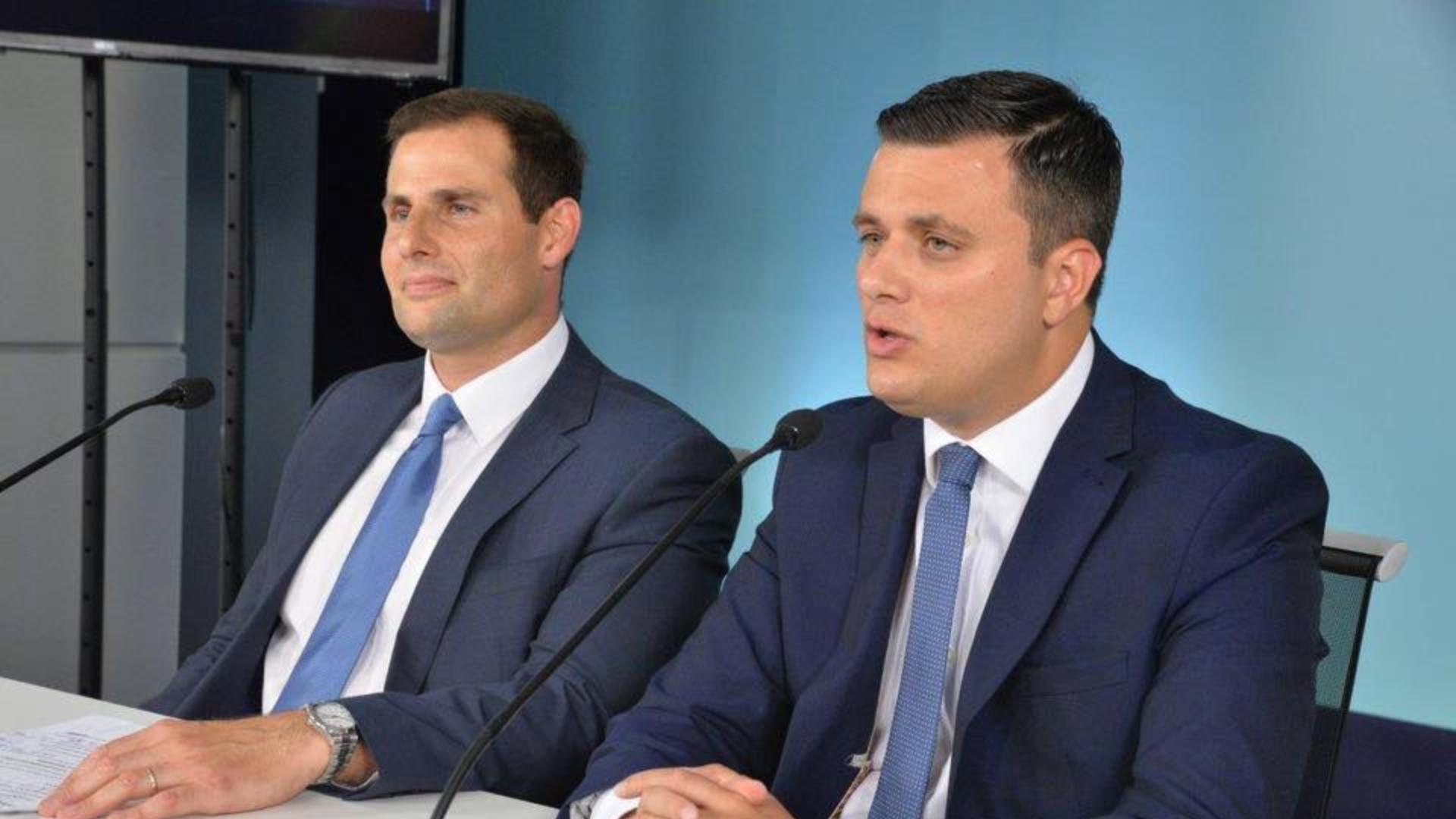“The committee sees no reason why the economic wealth of Malta should be used as a pretext for restricting fundamental rights”. This was just one of many biting chastisements the ‘committee of media experts’ delivered to Robert Abela in the long-awaited report published this week.
On 11 January 2022, the principal permanent secretary notified retired Judge Michael Mallia that the prime minister had appointed him to chair a ‘committee of experts’ on media and journalism.
The Caruana Galizia inquiry report recommended setting up that committee. It was meant to deeply examine the state of journalism and the fundamental right of freedom of expression and to acknowledge the value of the work performed by journalists in the interests of democracy.
The judges advised that the committee should produce specific recommendations that parliament would consider in a short defined timeframe. It recommended that the whole process should fall under the auspices of the President of Malta in order to ensure good governance and the rule of law.
Robert Abela did the opposite. He set up that committee under the auspices of the prime minister. Instead of allowing the committee to carry out their own deep examination as the judges recommended, Abela simply handed the committee legal amendments his government had drawn up and gave the committee an ultimatum. Come back to me with your reaction within two months.
Abela’s amendments proposed changes to the Constitution, the Criminal Code, the Media and Libel Act and the Code for Organisation and Civil Procedure. The handpicked members of his committee had only two months to respond.
Rather than the broad terms of reference, the Inquiry Board had envisaged, Abela bound the committee’s hands and feet, presenting them with his own amendments to examine and an impossible time frame to stick to. Abela’s excuse for his haste was “the importance of these legislative amendments”.
The committee didn’t make it in time. Judge Mallia was compelled to write to the prime minister begging for more time on the pretext of the general elections and a papal visit. Abela acceded to their request to extend their deadline to 20 April.
Abela had bound himself to table the committee’s report in parliament within ten days of receiving it. Five months later, Abela had still not published the report. It was only released after vocal protest, including an open letter from over 100 academics, editors and journalists to the prime minister to publish the committee’s recommendations.
Abela bragged that his government had spent “the last few months” on “a process of wide consultation” that delivered those legal amendments. At the press conference launching the proposed legislation, Justice Minister Jonathan Attard echoed Abela’s false claims. He referred to a conference on the subject, in which the government had not even participated, as proof of this wide consultation.
On 14 February, Matthew Caruana Galizia wrote to the committee inviting them to participate in that conference. The committee rejected the invitation. Secretary Frankie Mercieca wrote, “the first part of its (the committee’s) remit….does not authorise it to discuss its deliberations in public – it would be prudent not to participate in public discussions”.
Abela had sworn the committee to secrecy. He wasn’t having any public discussion.
On 7 March, Mark Camilleri wrote to Judge Mallia complaining that “there has been no consultation or discussion by the government with the media and the publishing industry over any proposed reforms on the results of the public inquiry on the murder of Daphne Caruana Galizia”.
Abela’s amendments were so inadequate, so pathetically embarrassing, that his own handpicked committee had to overhaul them. It was the committee that proposed adding a new article (20B) to the constitution making the state “recognise the independent media as a fundamental requisite for democracy and its role as a public guardian…..the state should protect and promote the independence of the media by providing an environment that facilitates independent journalism”.
In one of the most humiliating recommendations by the committee, the government’s proposal for Article 41 sub article 1 relating to freedom of expression was substituted by that proposed by the Opposition. “The article from the Opposition…in the view of the committee is better suited.. and should be adopted in its entirety”.
In another equally incisive comment, the committee noted that amendments relating to the protection of journalists’ sources “need beefing up”. The committee recommended the addition of a vital clause: “the protection of sources of journalists, including information that may lead to the identification of sources, is guaranteed and should not be restricted…”.
The committee was compelled to intervene to protect the right to freedom of information, proposing a crucial amendment – “Public authorities will be obliged to provide access in reasonable time to information they hold, and information about their activities..”.
It was also the committee which recommended that the court be empowered to stop hearing a libel case if, in the court’s judgement, the case was part of a strategy to impose unwarranted financial burdens or intended to intimidate, prevent or discourage public participation in debate on issues of public interest.
Abela’s most autocratic legal amendment put “the economy of Malta” above the fundamental right to privacy of life, home and personal communications. Abela proposed that “the economy of Malta” could be used as a pretext for authorities to search a person, his property or his private communications.
The committee lambasted Abela – “the committee sees no reason why the economic wealth of Malta should justify interfering with fundamental rights”.
Abela continues to damage the country through his enforced secrecy (although there’s a lot to be said of those journalists on the committee who agreed to it), contemptuous exclusion of public consultation, and arrogant refusal of all offers of technical assistance from international press freedom organisations.
The stinging rebuke delivered by Daphne Caruana Galizia’s elderly parents to Robert Abela was emphatic and devastating. “Reforms should be implemented transparently, preceded by a period of public consultation that should not be rushed for the sake of political expediency – our daughter, and our country, deserve no less”.













an arrogant and cheat not worth of his title – this is expected from the consultant of the most corrupt ex pm Malta ever had. Shame on you rob.
What is surprising is that the committee accepted the PM’s agenda instead of adopting the agenda set up by the three judges.
Pajjiż tal-mistħija minn fuq s’isfel.
It seems that ALL Government Board Members have been forced to sign NDA’s ( Non Disclosure Agreements) despite that these boards are Public Boards and not the Secret Service Board or the refreshments waiter at Kastilja. I advice those sitting on Parlamentary Committees to start with this question. ” Have you signed any NDA or similar documents or sworn to secrecy the board discussions? Following certain PAC Parlamentary questioning , the level of Blank Memory or refusing to answer because of incrimination simply indicates the corruption in these boards.
What can anyone expect from a part-time Prime Minister?
Shoddy work and disastrous decisions. What else.
ROBBER Abela: Talk nicely, act poorly
THE INCUMBENT PM IS AS ARROGANT AND CHEEKY
AS HIS DISGRACED PREDECESSOR.
ROBBER Abela: Talk nice, act poorly.
Personal I think that ‘Mr. Runnaway’ or ‘Chicken’ fits better.
And he know why he is running away. And he know why he is so chicken.
.
When we met one of the GANG:
.
We shouldn’t say “good day” or ‘Hello’ anymore,
we should say ‘mafia‘ or ‘parasite‘ or ‘corrupt man‘ as well as ‘destroyer of Malta‘ or ‘destroyer of the future‘.
.
.
For the sake of our children, we must not be afraid anymore.